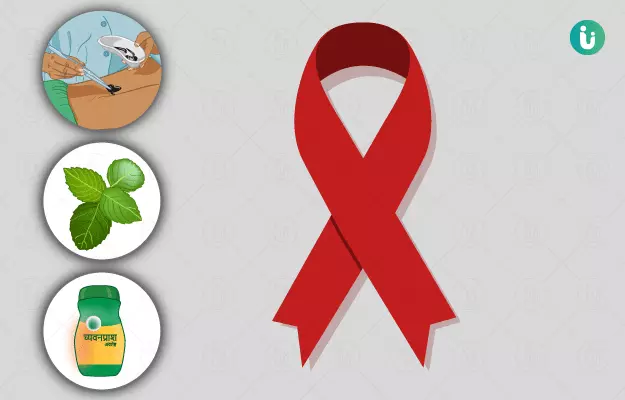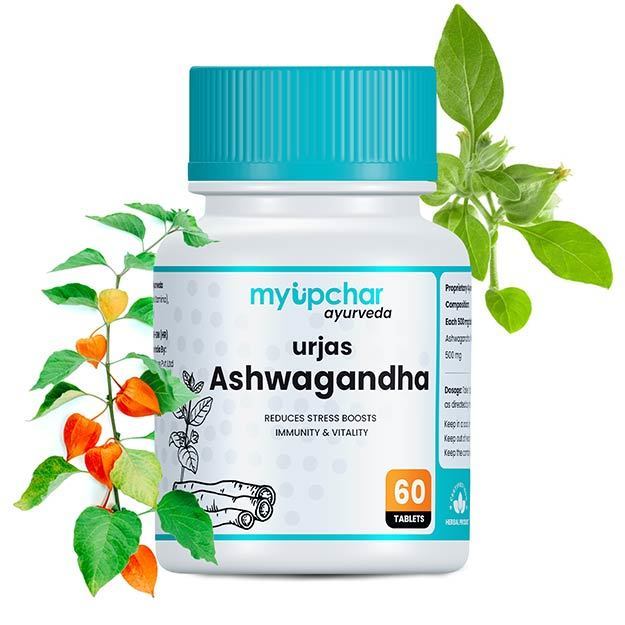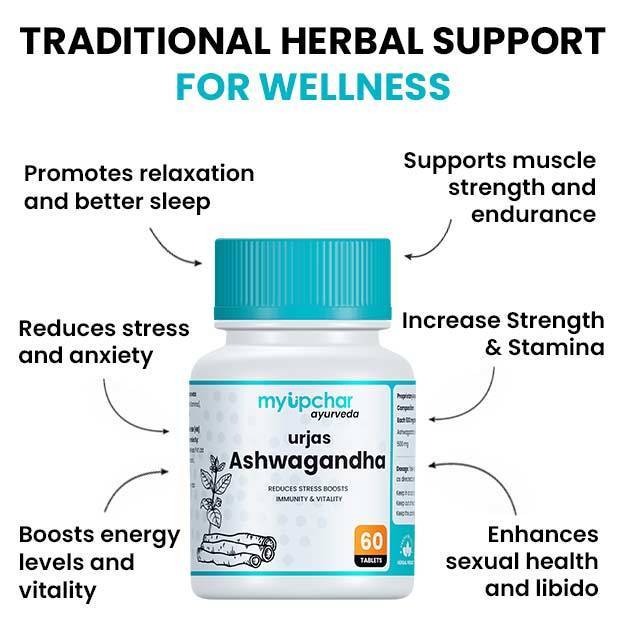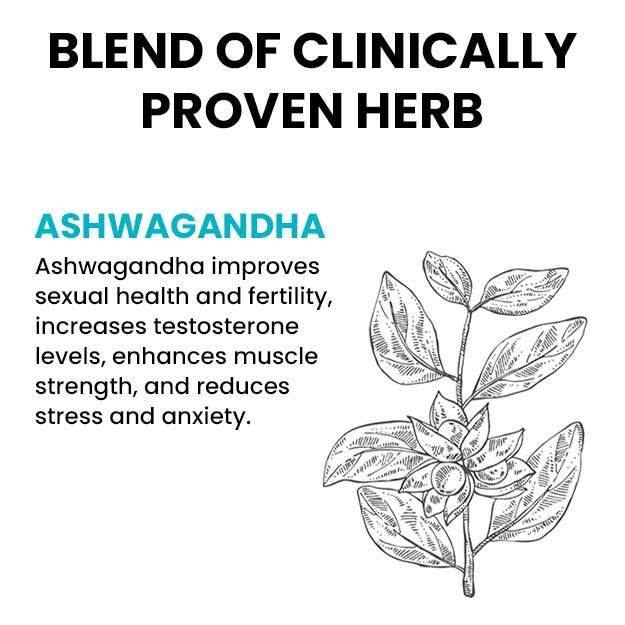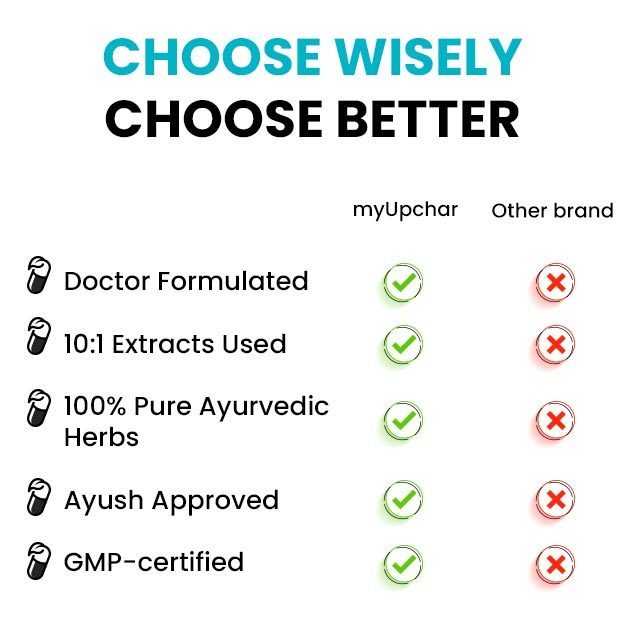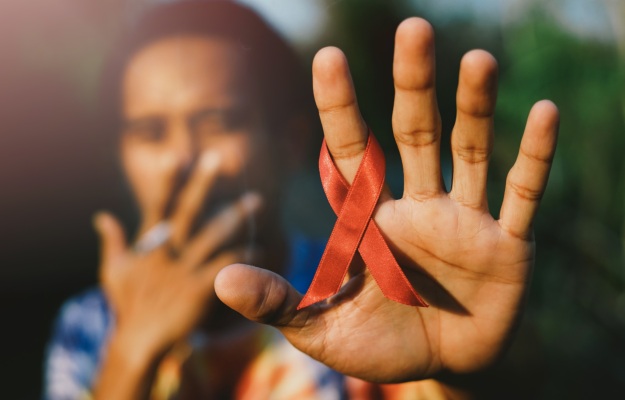HIV affects the immune system, making you more prone to common opportunistic infections, which take longer for complete recovery. According to an estimate, about 23 million of the world’s population have been diagnosed with human immunodeficiency virus (HIV) infection, out of which approximately 8.1 million people have acquired immune deficiency syndrome (AIDS).
Ayurveda terms disorders like AIDS as progressive wasting disorders where depletion of the eighth dhatu (element) of the body, the ojas dhatu, takes place. The ojas dhatu is said to be the essence of all the dhatus (elements) in the body as it is created from the finest part of all dhatus and supports immune system. When ojas is vitiated and depleted, the immune structure of the body crumbles and leaves the body open to many infections and diseases.
According to conventional medicine, when the body fights infection, it is the CD4 type of white blood cells that locate pathogens and destroy them. However, HIV infection damages immunity and reduces the count of CD4 cells. When the CD4 cell count drops below 200 (a healthy count is 500 and above), the condition is classified as AIDS.
Amalaki (Indian gooseberry), ashwagandha (Indian ginseng), guduchi (heart-leaved moonseed) and shatavari (hundred roots) are some of the herbs described by Ayurveda to improve body’s resistance and boost immune function, thereby helping in the management of AIDS. Chyavanprash avaleha is also found to be effective in improving overall health. Ayurveda promotes sadvritta (life of good conduct) techniques like avoiding over-stress, maintaining cleanliness, being faithful to one’s partner, and living a spiritual life for better management of HIV. Taking preventive measures like checking blood samples before blood transfusion procedures, avoiding the use of infected needles, avoiding unsafe sex, and getting tested for HIV during pregnancy can help prevent the spread of HIV.
- Ayurvedic view of HIV-AIDS
- Ayurvedic treatment for HIV-AIDS patients
- Ayurvedic herbs and medicines for HIV-AIDS
- Dietary and lifestyle changes for HIV-AIDS patients as per ayurveda
- How effective are ayurvedic medicines and treatments for HIV-AIDS
- Side effects and risks of ayurvedic medicine and treatments for HIV-AIDS
- Takeaway
- Takeaway
Ayurvedic view of HIV-AIDS
According to Ayurveda, loss of ojas, the creamy by-product of shukra dhatu in the body is the reason for progressive wasting disorders like AIDS. Loss of ojas occurs due to many reasons such as depression, debility, feelings of wretchedness, wastage and loss of senses and coordination. People with an HIV infection experience rashes, fever, sore throat, lymphadenopathy and malaise. Those with HIV or AIDS can develop other opportunistic infections such as herpes zoster, oral thrush and seborrheic dermatitis due to their lowered immunity. The affected people are also prone to tuberculosis, neuropathy, Kaposi’s sarcoma and cytomegalovirus retinitis. Different types of rasayanas (rejuvenatives) including dravya (medicinal) rasayana, achar (behavioural) rasayana and ahar (food) rasayana help reverse the damage done to the immune system.
Ayurvedic treatment for HIV-AIDS patients
- Rakta mokshana (blood-letting)
- Rakta mokshana is a procedure where toxic blood is drawn out of different body sites based on the location of the vitiated doshas.
- Rakta mokshana is usually done when immediate results are desired such as in case of some pitta-related disorders like headaches, conditions affecting the spleen, skin and liver, gout and high blood pressure.
- Performing the blood-letting procedure using leeches has shown prominent effects in improving the health condition of people with HIV infection and AIDS. Leeches not only helped eliminate toxins from the body, but also improved the CD4 cell count, thereby improving the immunity levels.
- Rasayana (rejuvenative)
- Rasayana is a treatment procedure that uses rejuvenating herbs and tonics to improve a person’s health. Achara rasayana, ahara rasayana and dravya rasayana are all used for treatment in people with HIV/AIDS.
- Achara rasayana includes making improvements in the code of conduct of people with HIV/AIDS. It helps people achieve good spiritual and mental health. It also gives relief from anxiety and stress, thereby, preventing diseases that are caused due to increased stress levels.
- In the dravya rasayana procedure, a single herb, herbo-mineral or polyherbal formulations are given to the patient to improve immune system function. This treatment follows the concept of modern medicine that a healthy diet, along with proper nutrition, a healthy lifestyle, and supportive counselling sessions is necessary to repair the existing damages to the immune system.
- Ahara rasayana includes providing food products that are rejuvenative in nature, like milk.
Ayurvedic herbs and medicines for HIV-AIDS
Ayurvedic Herbs for HIV/AIDS
- Amalaki
- The fruits of amalaki plant are used as rasayanas in the treatment of many diseases including HIV infection and AIDS. Amalaki pacifies all three doshas.
- Amalaki fruits are a rich source of vitamin C and also have anti-bacterial, anti-oxidising, and anti-inflammatory properties. Amla consumption reduces the risk of bacterial infections and inflammatory conditions, which, in turn, prevent diseases in people with HIV and AIDS.
- Amalaki also helps improve longevity and quality of life. It increases body’s resistance to infection due to its immunomodulatory effects and provides relief from inflammation in the lungs. Amalaki is helpful in providing relief to people who have tuberculosis along with AIDS.
- You can take amalaki in many forms, e.g., powder, decoction or as directed by your physician.
- Ashwagandha
- Ashwagandha has immunomodulatory, anti-oxidising, adaptogenic and anti-inflammatory properties. These properties help inhibit the inflammatory processes in the body.
- Ashwagandha is also known to relieve depression and anxiety along with improving mental functions due to its anti-stress properties. This herb is also known to protect against infections, especially in those with lowered immunity levels. Therefore, helping AIDS or HIV patients to live a healthy and stress-free life.
- Ashwagandha is also used to treat other health problems such as fatigue, swollen glands and paralysis. You can take ashwagandha in the form of powder, decoction, infused with oil or ghee or as per your physician’s directions.
- Yasthimadhu (mulethi)
- Yashtimadhu is helpful in managing HIV infection and AIDS due to its immunostimulant and immunomodulatory effects. It specifically stimulates the immune system's resistance to HIV.
- Yashtimadhu also helps treat other conditions including a sore throat, muscle spasms, inflammation, general debility and ulcers. In addition to its immunomodulatory properties, it also has expectorant (expels phlegm), demulcent (sooths mucus membranes), sedative (induces sleep), rejuvenative and laxative (regulates bowel movements) properties.
- You can take yashtimadhu in the form of a decoction prepared with water or milk, infused with ghee, powder or as per your physician’s direction.
- Tulsi (holy basil)
- Tulsi has an immunomodulatory and anti-stress effect, which makes it useful in the treatment of AIDS. It also has antiviral properties, due to which it is useful against HIV as well. Tulsi has anti-oxidant, anti-bacterial, analgesic (pain-relieving) properties and is a vermifuge (expels worm from the system).
- Tulsi is useful in treating allergic bronchitis, arthritis and respiratory problems. It also improves appetite and digestive functions.
- You can take tulsi in the form of a powder or infusion along with ghee, juice or as per your physician’s directions.
- Punarnava (red hogweed)
- Punarnava has immunomodulatory properties that make it useful in enhancing the immunity levels in body. It also has antiviral properties that help fight against HIV and prevent other viral infections. Punarnava is an excellent antibacterial. It prevents bacterial infections such as tuberculosis in people with HIV/AIDS.
- Punarnava possesses anti-arthritic and anti-stress properties. It is recommended as a chief herb for the treatment of kidney stones.
- You can take punarnava in the form of medicated oil, infusion, powder, juice or as per your physician’s directions.
- Haritaki
- Haritaki is known to have anti-bacterial, immunomodulatory, anti-inflammatory and anti-oxidising properties that are useful in improving immunity, fighting bacterial infections and preventing inflammatory diseases in people with HIV infection or AIDS.
- Haritaki also has rejuvenative, astringent (constricts tissues) and laxative (regulates bowel movements) properties. It is used as a tonic for the body. Along with AIDS, it provides relief from many other health conditions such as piles, diarrhoea, mouth ulcers and liver disorders.
- You can take haritaki in the form of a paste, decoction, powder or as per your physician’s directions.
- Guduchi
- Guduchi improves body's defence system and is useful for improving suppressed immunity. This is because the active constituents of the plant show immunomodulatory effects. Guduchi enhances the phagocytic activity (the activity of ingesting foreign substances) and stimulates the function of macrophages (a type of white blood cells that engulf and digest foreign materials) in the body.
- Guduchi is also used in treating anaemia, jaundice, tuberculosis, persistent malarial fever and diabetes.
- You can take guduchi in the form of powder or extracts or as per your physician’s directions.
- Shatavari
- Shatavari has immunomodulatory and antioxidant properties. It is known to be the primary herb that is used for enhancing the immune system and is considered beneficial in people with AIDS. It also improves overall strength in chemotherapy patients.
- It helps treat herpes, hyperacidity, dysentery, fever, impotence and other health conditions.
- You can take shatavari in the form of powder along with oil or ghee, decoctions or as per your physician’s directions.
Ayurvedic Medicines for HIV/AIDS
- Chyavanprash avaleha
- Chyavanprash avaleha is a polyherbal formulation that contains amalaki as the main ingredient. It acts as a tonic and rejuvenative and helps improve the overall health of people with HIV infection and AIDS. Avalehas are confections made by boiling a medicinal decoction along with sugar or jaggery.
- You can take chyavanprash avaleha with cane juice, boiled milk, as a decoction or as per your physician’s directions.
- Vasanta kusumakar
- Vasanta kusumakar contains bhasmas (calcined preparations) of suvarna (gold), pravala (coral), vanga (tin), naga (lead) and other ingredients. It is mainly used for treating vata diseases, cough and tuberculosis.
- Vasanta kusumakar can help treat diseases that are caused due to ojakshaya (depletion of ojas). It improves health in people who are too thin, excessively tired and have pale skin. It provides mental and emotional bala (strength) and, thus, helps fight depression. It also provides bala to lungs, heart, and digestive and reproductive systems. Therefore, this medication treats weakness and improves strength in people with HIV infection and AIDS.
- Vanga bhasma
- Vanga bhasma improves strength in the organs of shukra dhatu. It is useful in treating tuberculosis and diseases caused due to excessive sexual activity, which leads to depletion of shukra dhatu levels. Therefore, it is helpful in managing HIV infection or AIDS caused due to sexual activity. It also increases weight in thin people.
- Vanga bhasma also has krimighna (worm-destroying) properties.
- Trailokyachintamani rasa
- Suvarna bhasma, gandhak (brimstone) bhasma, tamra bhasma (copper ashes), parad bhasma (mercury ashes), etc., are included in the formulation of trailokyachintamani rasa.
- It is useful in treating joint pain, heart diseases and back pain. This formulation increases strength and reduces weakness in people with HIV infection or AIDS.
As treatments vary based on numerous factors and an individual’s prakriti (constitution), consult a qualified Ayurvedic doctor for the appropriate medications and treatments for your specific complaint.
"Discover myUpchar's Ashwagandha Stress Relief, a blend of pure Ayurvedic herbs. Recommended by experts, it effectively alleviates stress, promoting calmness and well-being for a balanced and tranquil life."
Dietary and lifestyle changes for HIV-AIDS patients as per ayurveda
Do’s
- Test the blood for HIV virus before using it for blood transfusion.
- Maintain good hygiene.
- Be faithful to one’s partner. (Read more: Safe sexual practices)
- Live a spiritual life.
Don’ts
- Do not have unprotected sex.
- Do not share needles.
- Do not overstress yourself.
How effective are ayurvedic medicines and treatments for HIV-AIDS
According to the results of an experimental study, amalaki helps to increase body weight and serum proteins.
In another study that was conducted to check the effects of tulsi on the stomach, lungs, and liver of mice, tulsi showed a stimulatory effect on enzymes that have a role in detoxifying carcinogens (cancer-causing substances).
Punarnava, when fortified with milk, showed hematinic (stimulating the formation of blood cells and increasing haemoglobin levels in the blood) and growth-promoting properties, particularly in children.
Tuberculosis is a common and major complication seen among people with HIV infection and AIDS. A double-blinded, controlled, randomised study was conducted to study the effects of guduchi on patients with tuberculosis. As per the findings of this study, guduchi stimulates the activity of macrophages, thereby improving immune function. It provided faster recovery when given along with conventional tuberculosis treatments.
Side effects and risks of ayurvedic medicine and treatments for HIV-AIDS
- Ashwagandha should not be given to people with cancer or congestion.
- Yashtimadhu should not be used in people with excess kapha dosha, hypertension, oedema, and those who have increased potassium absorption capacity. People with these conditions should preferably be given the deglycyrrhizinated form of yashtimadhu. Yashtimadhu should not be used in pregnant women.
- Punarnava should not be given to people who have excess pitta, hyperacidity or toxic blood heat. This herb may cause mental dullness; therefore, it should only be used when it is prescribed as a medication.
- Shatavari should not be used in people with excess ama (toxins) in their body.
- Haritaki should not be given to those who are severely exhausted and dehydrated. Its use should be avoided in lean people. If haritaki is taken in excess quantities, it can increase pitta in the body.
Takeaway
Ayurveda cannot cure AIDS, the final stage of HIV. However, the herbs, medicines and lifestyle changes suggested by Ayurveda can boost immunity by increasing the CD4 and CD8 cell counts, thereby increasing the life span of people with HIV infection or AIDS.
Find Ayurvedic Doctor in cities
Doctors for Ayurvedic medicine, treatment and remedies for HIV-AIDS

Dr. Ayush Bansal
Ayurveda
2 Years of Experience

Dr. Megha Sugandh
Ayurveda
6 Years of Experience

Dr. Nadeem
Ayurveda
3 Years of Experience

Dr.Ashok Pipaliya
Ayurveda
12 Years of Experience
References
- SK Sayal et al. Role Of Ayurvedic Drugs In Treatment Of Hiv Infection. Med J Armed Forces India. 1998 Oct; 54(4): 374.PMID: 28775545.
- Rajiv Gandhi Government Post Graduate Ayurvedic College. Kayachikitsa. Paprola, Himachal Pradesh. [Internet]
- M Fritts et al. Traditional Indian medicine and homeopathy for HIV/AIDS: a review of the literature. AIDS Res Ther. 2008; 5: 25. PMID: 19102742.
- Ven Murthy MR1, Ranjekar PK, Ramassamy C, Deshpande M. Scientific basis for the use of Indian ayurvedic medicinal plants in the treatment of neurodegenerative disorders: ashwagandha.. Cent Nerv Syst Agents Med Chem. 2010 Sep 1;10(3):238-46. PMID: 20528765.
- Kesava Rao V. Kurapati, Venkata S. Atluri, Thangavel Samikkannu, Gabriella Garcia, and Madhavan P. N. Nair. Natural Products as Anti-HIV Agents and Role in HIV-Associated Neurocognitive Disorders (HAND): A Brief Overview. Front Microbiol. 2015; 6: 1444. PMID: 26793166.

